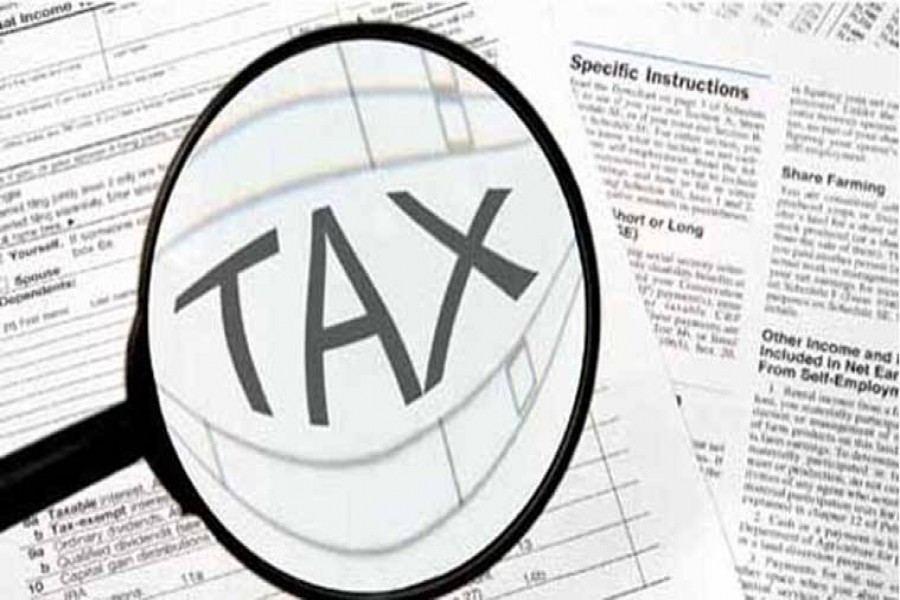Income tax is a levy on income. The collection of income tax takes place according to the Income Tax Ordinance 1984 (ITO-1984). Every year during budget presentation for ensuing financial year, applicable laws and levies are amended by a proposal from the Finance Minister. The budget speech regularly covers changes in the tax laws for the prospective year. That part of budget is termed as Finance Bill.
The tax collections are done by Income Tax Returns submitted by TIN (Tax Identification Number) holders. There are regular inclusion of new taxpayers every year on a recurring basis. Indeed beyond this returns taxes are collected under different modes. These are covered in section 52, 52A, 52AA & many other sub sections under section 52. Also 53, 54, 55, 56 are the sections that cover deduction at source called AIT or TDS. The rate of AIT & TDS, especially Tax Deducted at Source, are mostly uneven and not rationalised. The deductions are as high as 10 per cent on collection of revenue on many professionals. Moreover, VAT @ 15 per cent also applies on many such bills. The profit of profession is even not sufficient for 10 per cent TDS (tax deducted at source). As many import & sales bill involve TDS and AIT (advance income tax), the cumulative tax paid as AIT & TDS ahead of the year end by these organisations accumulate to enormously large amount and these assesses submit returns showing inordinately high sum of TDS/AIT. When these taxpayers submit returns of income tax their shown income cannot in any way absorb the TDS/AIT. Indeed every year such amount accumulates but problem of adjustment persist with the assessing offices.
The law about refund is spelled in section 146 as Entitlement of refund which states-
- A person, who satisfies the Deputy Commissioner of Taxes or other authority appointed by the Government in this behalf that the amount of tax paid by him or on his behalf, or treated as paid by him or on his behalf, for any year exceeds the amount with which he is properly chargeable under this Ordinance for that year, shall be entitled to a refund of any such excess.
- Where the income of the person in included under any provision of this Ordinance in the total income of any other person, such other person alone shall be entitled to a refund under this chapter in respect of such income.
The ITO-1984 clearly spells about claim of refunds, refunds on the basis of appeal order, form of claim & limitations, interest on delayed refund and adjustment of refund against tax etc. In line with all these huge refunds are created in large number of files. On an annual basis assessments are performed by the DCTs (Deputy Commissioners of Taxes) for the client taxpayers.
A huge amount of disallowances of expenses catered with anticipated but enormous amount of increase in sales are projected by the assessing offer. Even when the bank statements and financial statements are furnished, assessments are made on surmise and projection. In such cases the sales figures are doubled or tripled by the sweet will of assessing office. This leaves the demanded tax to be a very high amount. This kind of assessment makes huge tax demands on taxpayers which are never to be paid off. The refunds created on these files are kept suspended on assessment afterwards for adjustment. The process of demands continues unabated while the created refunds are resulted after appeal with Commissioner of Taxes & Taxes Appellate Tribunals. It is quite a lengthy procedure. But after the lengthy provess of filing appeals with CT Appeal & Tribunal ends up, a refund is finally created at the assessing officer's surmise. The refunds are never or seldom made by the NBR in favour of the claimant-taxpayers.
Moreover, such creation of refunds do not take place spontaneously nor on time. The pleaders or for that matter Taxpayers get tired of efforts dedicated to it. Yet the refunds are seldom made paid to them.
The attitudes to taxpayers and pleaders need to be business-friendly. NBR should consider approaching taxpayers as revenue givers. The tax collectors are not police, they must be well mannered in dealing with taxpayers. The discretionary powers of assessing officers are to be very rationally exercised to meet the client's demand for a judicious conclusion of tax assessments.
Masih Malik Chowdhury is Founder Partner, Masih Muhith Haque & Co., Chartered Accountants and Past President of ICAB.


